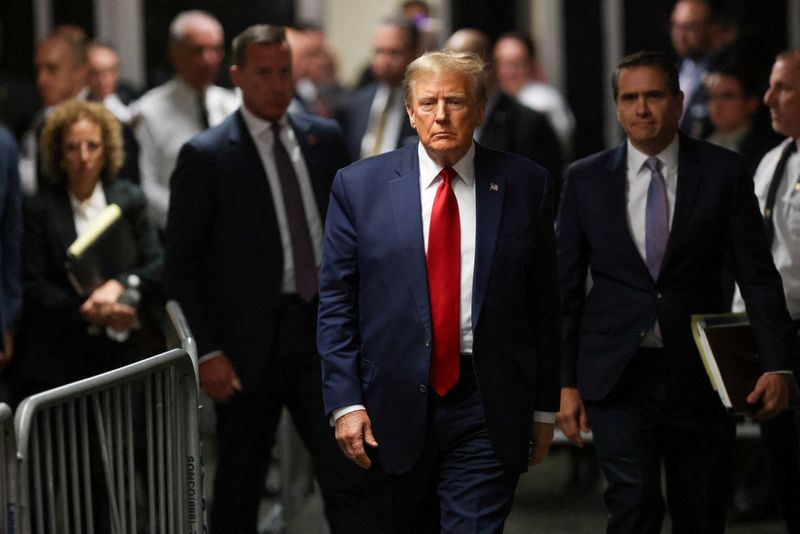By Andrew Goudsward
WASHINGTON (Reuters) - U.S. prosecutors on Thursday accused Donald Trump of bringing a “frivolous” claim of presidential immunity in the criminal case accusing him of mishandling classified documents after leaving the White House.
The move by Special Counsel Jack Smith is an effort to block the former president from using an immunity claim to delay trial, after the U.S. Supreme Court agreed to hear arguments next month on his claims of immunity in a separate case accusing him of trying to overturn his 2020 election defeat.
"Because Trump advances an entirely meritless claim that could not provide him any relief even if correct, the Court should deny his immunity claim," Smith argued in a court filing. "That frivolous claim is offered for one transparent purpose — to delay the trial."
Immunity claims, unlike other legal issues addressed before a trial, can usually be immediately appealed. Trump's immunity appeal in the election-related case has caused months of delay.
Smith said all the conduct charged in a 40-count indictment against Trump occurred after he left the White House in January 2021 and would not be covered even if presidents are entitled to protection against criminal prosecution for official actions.
Trump, the Republican presidential candidate, has argued that the charges stem from official decisions he made in his final days as president, including a purported move to designate certain records as “personal” rather than belonging to the U.S. government. Prosecutors have said the documents related to issues including nuclear weapons capabilities and U.S. vulnerability to military attack and could not be construed as personal records.
Smith’s filing came as he responded to an array of legal motions to dismiss the case brought by Trump and his two co-defendants, personal aide Walt Nauta and Carlos de Oliveira, a property manager at Trump’s Mar-a-Lago resort.
Prosecutors responded to Trump’s not-yet-public filing alleging Trump was selectively targeted because other former U.S. officials, including Democratic President Joe Biden, were not charged for mishandling classified information after leaving office.
A different special counsel, Robert Hur, last month concluded that there was evidence Biden willfully retained national security information after he left the vice presidency in 2017, the same offense facing Trump. But Hur opted not to bring criminal charges, noting Biden had cooperated with the investigation and a conviction would be difficult to obtain.

Trump’s filing remains sealed while Cannon determines whether some portions should be redacted.
Smith’s prosecutors acknowledged “superficial similarities” between the two cases, but said Trump’s alleged “repeated and flagrant obstructive efforts” distinguished his case from Biden’s.